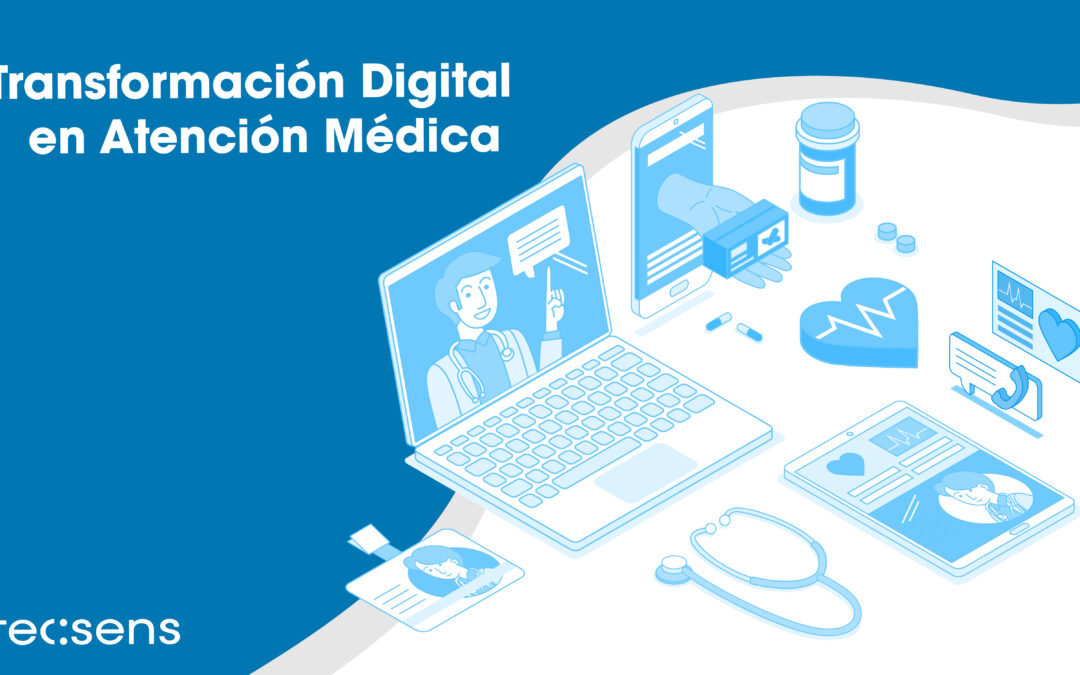Digital transformation has been a hot topic in various industries in recent years, and healthcare is no exception. The integration of technology into healthcare is fundamentally changing the way patients receive care and how healthcare professionals deliver their services. This shift is especially significant in a post-pandemic world, where telemedicine and digital solutions have become even more crucial. In this article, we’ll explore how digital transformation is changing healthcare today.
Telemedicine: A Revolution in Healthcare
Telemedicine has become an integral part of modern healthcare thanks to digital transformation. With the proliferation of broadband and mobile devices, patients can now consult their doctors from the comfort of their homes. This has been especially beneficial during the COVID-19 pandemic, as it has allowed patients to access care without exposing themselves to the risk of infection in clinics and hospitals.
Telemedicine has not only improved accessibility to healthcare, but has also increased efficiency. Doctors can conduct consultations online, allowing them to see more patients in less time. In addition, it has been shown to reduce costs for patients, as it eliminates transportation expenses and waiting time in clinics.
Electronic Health Data: Greater Coordination and Accuracy
The digitization of medical records has had a significant impact on healthcare. Electronic health data (EHR) allows healthcare professionals to access complete patient clinical information more quickly and accurately. This improves coordination between different healthcare providers and reduces medical errors due to lack of information.
In addition, EHRs also facilitate the active participation of patients in their care. Patients can access their own medical records and communicate with their doctors through digital platforms, encouraging greater transparency and participation in the medical decision-making process.
AI and Data Analytics: A New Approach to Diagnostics
Artificial intelligence (AI) and data analytics are key technologies that are transforming healthcare. AI algorithms can analyze large patient data sets to identify patterns and trends that humans might miss. This is especially valuable in the early diagnosis of diseases and the identification of effective treatments.
AI is also used in the interpretation of medical images, such as X-rays and MRIs. Deep learning algorithms can detect anomalies with astonishing accuracy, speeding up the diagnostic process and reducing the workload of radiologists.
Personalized medicine: data-driven treatments
Digital transformation has enabled a more personalized approach to healthcare. Data collected from patients over time can be used to develop individualized treatments. For example, genomics has enabled the identification of genetic biomarkers that can influence a patient’s response to a specific treatment. This means doctors can select therapies that are more effective and have fewer side effects for each patient based on their genetic profile.
Challenges and concerns in digital transformation in healthcare
Despite the positive developments, the digital transformation in healthcare has also raised challenges and concerns. Health data privacy is a critical issue, as the Collection and sharing of digital health information carries security risks. Ensuring the protection of patient information is essential to maintaining trust in these technologies.
In addition, the digital divide is a major concern. Not all patients have equal access to technology or the ability to use it effectively. This raises questions about equity in access to health care and the need to find inclusive solutions.
Conclusions
Digital transformation is profoundly changing healthcare by improving the accessibility, efficiency and accuracy of healthcare services. However, challenges such as data privacy and the digital divide must also be addressed to ensure that all patients benefit from these advances. As technology continues to advance, it is critical that healthcare continues to adapt and leverage these advances to improve the health and well-being of people around the world.




